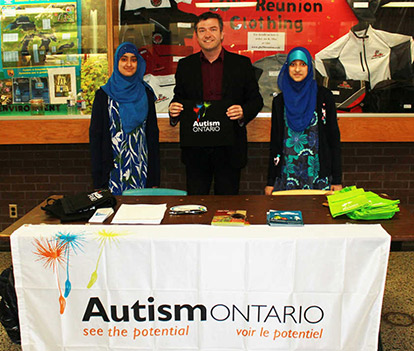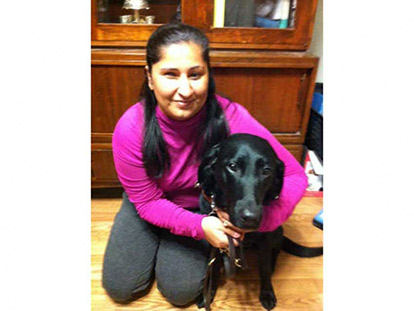Dec
Dec
The Canadian Association of Muslims with Disabilities launched their fourth annual khutbah (Firday sermon)awareness campaign at the beginning of December.
Hoping to bring issues of disabilities and inclusion to the forefront of communal awareness, the Association has asked imams and khatibs (speakers) across the country to talk about these issues through a scriptural lens during Friday prayers.
“The biggest impediment is the attitude of the community itself,” says Rabia Khedr, co-founder of the Association and a prominent advocate for inclusion. “Some of us come from cultures where we wear our emotions on our sleeves, and are quick to express pity.”
Ms. Khedr says that one of the most important ways to instill a healthy respect and awareness for those with special needs is to bring the examples of the Prophet Muhammad, peace and blessings be upon him, into the discussion. She says that this will help Muslims realize that people with disabilities should not be pushed to the margins of society and made irrelevant.
“Neither spiritual worth nor the prospect of effective spiritual guidance is to be measured by a man's position in life,” says Mohammed Khan, who attended last week's Friday service at the Islamic Forum of Canada in Brampton, Ontario. Shaykh Faisal Hamid Abdur-Razak delivered the sermon there, which focused on treatment of those with disabilities.
One of the lessons that Shaykh Faisal related is the famous story of Bilal, who was called upon by the Prophet, peace and blessings be upon him, to make the adhan (call to prayer) despite having a speech impediment. The Prophet, peace and blessings be upon him, did not let complaints from members of the community stop Bilal from making the call to prayer.
Powerful examples such as these are what the Association hopes will prompt members of the Canadian Muslim community to take treatment of those with disabilities seriously.
“The poor or the blind may be more susceptible to the teachings of God's word than men who are apparently gifted but suffer from arrogance,” Mr. Khan adds. “Those who are disabled have a deeper and committed sense of willpower to learn and to grow in his or her spiritual development.”
Ms. Khedr has hope that attitudes and dispositions toward issues of access and inclusion will change for the better over time. She notes that the younger generations of Canadian Muslims, who have grown up in Canada are more attuned to these issues, and are more sensitive to the needs of those with disabilities.
“There's definitely a difference in terms of the generations,” Ms. Khedr says, “but Islamic schools still have to put more of a focus on these issues.”
The campaign has garnered tremendous support form prominent members of the Muslim community both inside and outside of Canada. Among the supporters is Imam Zaid Shakir from Zaytuna College in Berkeley, California, who urges Canadians to work until education and other opportunities are not denied to those with disabilities simply because resources are lacking.
Supporters also include Dr. Hamid Slimi from the Canadian Council of Imams and Sheikh Abdalla Idris Ali of the Islamic Society of North America.
This article was produced exclusively for Muslim Link and should not be copied without prior permission from the site. For permission, please write to info@muslimlink.ca.


